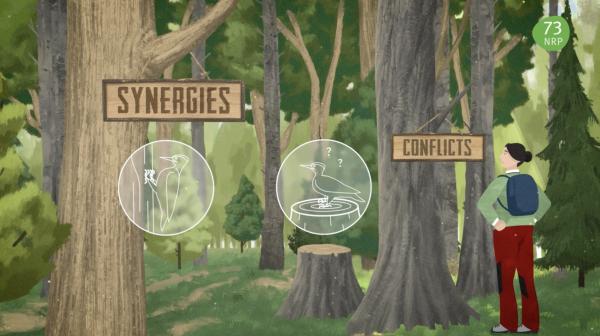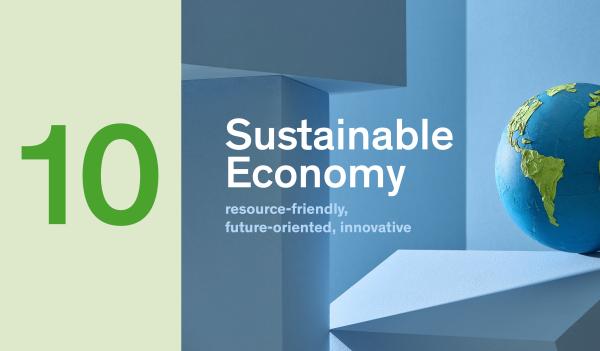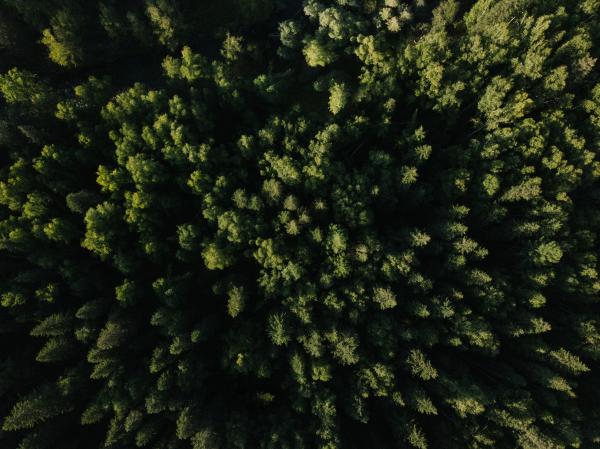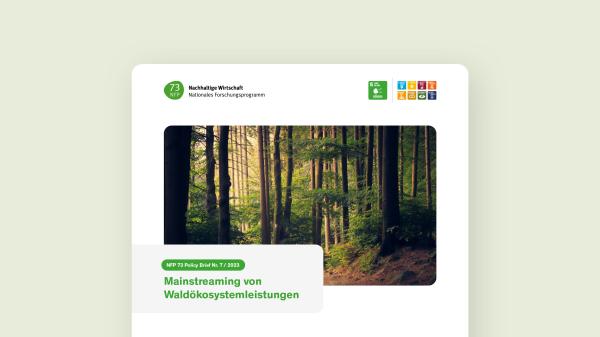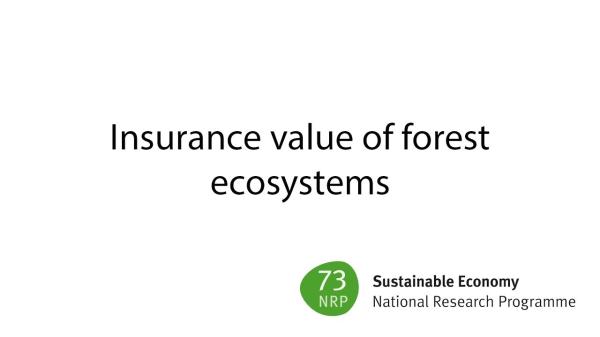Insurance value of forest ecosystems
We analysed the capacity of forest ecosystems to provide natural insurance services. As such we assessed the preferences of residents and investigated diverse institutional frameworks as well as enabling and hindering factors. The information acquired was used to develop a theoretical business model that can serve as a basis for a practical implementation of an insurance against natural hazards.
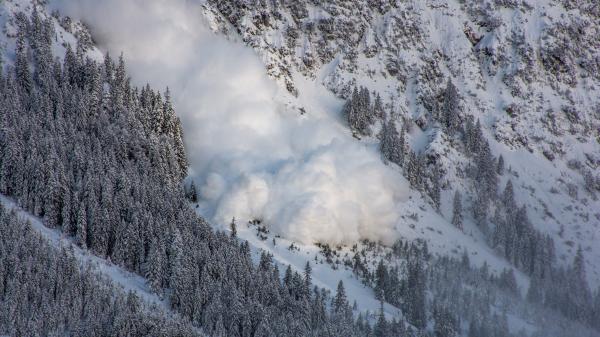
Background
Forest ecosystems provide services, such as protection against natural hazards, often free of charge. If the protective service is improved through forest management and this contributes to hazard prevention beyond current legal requirements, then forest owners render an additional natural insurance service to the endangered population. As forest owners are usually not rewarded for such services, undersupply can result, which means that the population receives less protection than is actually wanted and possible.
Aims
Our project aimed at (i) providing scientific evidence of the natural insurance capacity of ecosystems, (ii) creating a common understanding and exploring the acceptance of the natural insurance value among stakeholders, (iii) showcasing the potential and determining the value of natural insurance provided by ecosystem management, (iv) detecting the impact of contextual and institutional settings on the provisioning of insurance services, and (v) designing a business model to operationalize the insurance value of ecosystems for application in the insurance sector.
Results
Quantification of natural hazard protection
We developed and validated a simulation framework for the scenario-based quantification of natural hazard protection (and other ecosystem services) provided by mountain forests. The framework enables testing the effects of climate, management, and numerous disturbances such as wind, bark beetle, rockfall on the protective capacity of the forest. In the validation case study, residual rockfall hazard was 20-30% depending on the forest development scenario. Rock size and forest density were main factors affecting protection effectiveness.
Further, our rockfall simulations showed that deadwood piles, e.g. left in the forest after a storm event, have a substantial protective capacity compared to the pre-storm forest stand. This is a surprising result and confirms that nature-based protection solutions for gravitational hazards may further gain importance in an overall ecological and economic context.
Inclusion of forest protection in insurance models
Based on our choice experiment, we found that (i) there is a substantial willingness to pay (WTP) for reducing risks of natural hazards (beyond current legal requirements); (ii) no one-size-fits-all insurance approach is feasible since preferences and WTP estimates differ among respondents and regions; and (iii) if synced with forest-management and hazard-modelling components, science-based and practice-relevant solutions for the management of natural hazards can be developed.
Our theoretical insurance model demonstrated that the inclusion of forest protection as a component of insurance contracts can generate a win-win situation for both insurers and house owners. The option to combine financial and natural insurance can in turn encourage forest owners to provide such protection by forests, which is beneficial from a social welfare perspective.
Implications for research
The project expands the scientific bases for insurance services of forests and assesses their value from the population’s perspective. In this way we can enhance the awareness of human dependence on natural resources and foster their inclusion in political, economic, and individual decision-making.
Implications for practice
Our project clearly shows the potential and importance of deadwood for gravitational hazard mitigation. Forest managers may use our results as decision support when comparing the costs and benefits of different forest management strategies, which might include leaving deadwood in the forest after a disturbance event. From an insurance perspective it is important to note that natural and financial insurance services should be seen as complementary: the natural insurance provided by forests can cover the risk of events with a low damage potential and a high probability of occurrence, while the financial insurance takes over the remaining high-damage-low probability events.
Publications
Contact

Project leaders
Prof. Dr. Roland Olschewski
Eidg. Forschungsanstalt für Wald, Schnee und Landschaft WSL
Prof. Dr. Marc Hanewinkel
Professur für Forstökonomie und Forstplanung, Albert-Ludwigs-Universität Freiburg, Deutschland
Dr. Perry Bartelt
WSL-Institut für Schnee- und Lawinenforschung SLF
Prof. Dr. Rasoul Yousefpour
Professur für Forstökonomie und Forstplanung, Albert-Ludwigs-Universität Freiburg, Deutschland
Project partners
Aller Risk Management
Bundesamt für Umwelt BAFU
econcept
Gebäudeversicherung Graubünden
Kleinn Risk Management
Schweizer Hagel
